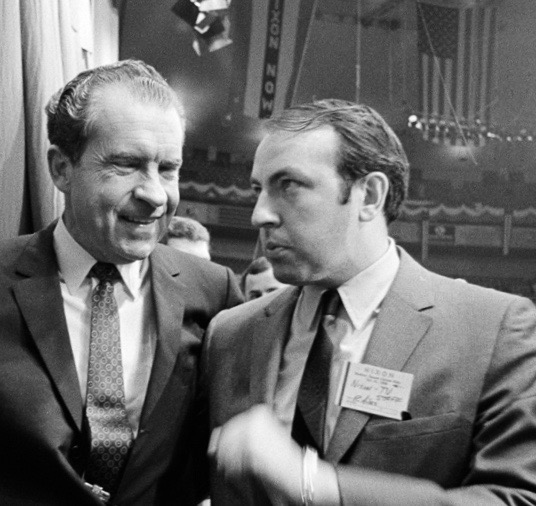
Roger Ailes would not have been pleased with Divide and Conquer: The Story of Rogers Ailes, Alexis Bloom’s critical biopic of the late Republican Party strategist which opens in Toronto on December 7.
Bloom, a liberal filmmaker, portrays the conservative media consultant and Fox News chairman as a divisive force in American politics and as a serial sexual predator.
In her estimation, Ailes was the first major figure to fall afoul of the changing cultural climate in the United States. One of the most influential voices in tabloid journalism, he was felled by an accusation that he had sexually harassed Fox presenter Gretchen Carlson.

Before long, another 14 women employed by Fox, including Megyn Kelly, accused Ailes of the same charge. Suddenly, Ailes was seen as nothing more than a dirty old man whose brain was subordinate to his penis. Having duly disgraced himself, Ailes was done. His boss, Rupert Murdoch, summarily fired him.
These events unfolded in 2016 and 2017, prior to the ignominious downfall of the Hollywood movie producer Harvey Weinstein and the formation of the #MeToo movement, which has had a profound impact on male-female relationships in America.
Despite her antipathy toward Ailes, Bloom recognizes there was more to him than sexual indiscretions. Ailes was a shaper of history, a kingmaker, a witty and intelligent man who altered the landscape of American politics.
Born and raised in Warren, Ohio, a town whose economy was decimated by global economic forces, he was the son of a tyrant who bullied his son. Diagnosed with the blood disease hemophilia at the age of four, Ailes lived in dread of bleeding to death. As a result, Bloom claims, he understood the fears of strangers.

Ailes’ budding career in television took off when he was appointed producer of The Mike Douglas Show, the first day-time talk program in the United States. He segued into politics when he became Richard Nixon’s media advisor. Through the skillful deployment TV commercials, Ailes shaped and manipulated Nixon’s heretofore stodgy public image. Ailes’ compelling visual style was influenced by Leni Riefenstahl, the director of the 1935 Nazi classic documentary, Triumph of the Will.

Being a freelancer, Ailes also worked for Mitch McConnell, Ronald Reagan and George H.W. Bush, helping them to ascend to the U.S. Senate and the presidency. His notorious Willie Horton attack ads on behalf of Bush set a new low in political commercials.
At this point in Bloom’s film the issue of sexual harassment comes up in greater detail. A woman who aspired to be a political operative was told by Ailes in no uncertain terms that her feminine assets could be to her advantage. As he said, “If you want to play with the big boys, you’ll have to lay with the big boys.” She demurred and was promptly placed on a no-hire list, which ended her career.
Bloom contends that Ailes destroyed the careers of women who refused to play along and possessed such a sense of entitlement that he once had the audacity to boast to a woman, “You’re my sex slave.”
In 1994, he started America’s Talking, the cable TV channel that caught Murdoch’s eye. When he launched Fox News in 1996, he hired Ailes as its chief executive. Ailes turned Fox into a daring and immensely profitable cable television channel that provided conservatives with a voice. The Bill Clinton/Monica Lewinsky sex scandal at the end of the 1990s was the “rocket fuel” that catapulted Fox into the “stratosphere.”
Ailes’ hubris prompted him to buy a small-town newspaper in Cold Harbor, New York, where he lived with his wife in a palatial home on a hill. Considering Cold Harbor his fiefdom, he used the newspaper to try to gain control of the town council. It would be one of the ugliest chapters in his life.

Bloom contends that Ailes’ naked partisanship at the helm of Fox drove a wedge between Americans and paved the way for a raft of conspiracy theories. Among them was the cockeyed assertion that presidential aspirant Barack Obama was not a native-born American and was thus ineligible to be president. The infamous theory was propagated by Donald Trump, a real estate billionaire and frequent guest on Fox shows.
Bloom acknowledges that Ailes — a control freak who was self-centred and profoundly paranoic — was canny, could read a person and could take the temperature of society. And he relished rousing and dividing the country, she adds.
Ailes’ world came crashing down when Murdoch, his boss, dumped him unceremoniously. There was nothing left for him after his abrupt dismissal. He died within a year of his sacking, injured fatally after falling down a set of stairs.
How the mighty have fallen.
